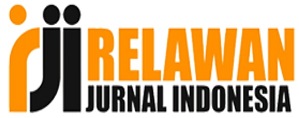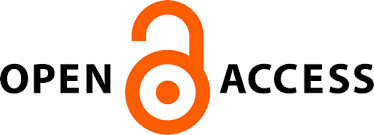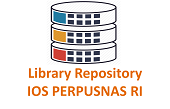External Locus Of Control, Financial Attitude, Dan Financial Management Behavior
Abstract
Generation Z's behavior in consuming goods and services has a tendency to a consumptive lifestyle, which can disrupt financial stability. Therefore, skills in managing finances must be possessed by Generation Z. Financial Management Behavior must be understood because the ability to manage finances helps to avoid a consumptive lifestyle. The focus of this study is to examine the effect of financial attitude on financial management behavior mediated by external locus of control on the consumption pattern of Generation Z, who in this study are students of the Management Department, Faculty of Economics and Business at UPN "Veteran" East Java. The number of samples in this study is 325. This study used the PLS-based Structural Equation Modeling (SEM) method. Based on the results of the study, it was found that Financial Attitude has a positive influence on Financial Management Behavior, and external locus of control has a partial effect on the two variables studied.
Downloads
References
[2] M. Jaciow and R. Wolny, “New technologies in the ecological behavior of generation Z,” Procedia Comput. Sci., vol. 192, pp. 4780–4789, 2021, doi: 10.1016/j.procs.2021.09.256.
[3] Katadata.co.id, “Survei KIC: Ada Tiga Layanan Digital yang Semakin Banyak Dipakai Gen Z,” Katadata.co.id, 2021. https://katadata.co.id/padjar/berita/60c0385836fd9/survei-kic-ada-tiga-layanan-digital-yang-semakin-banyak-dipakai-gen-z (accessed Mar. 02, 2022).
[4] A. B. Rahayu, N. Lesmana, and D. Murwanto, “The Impacts of Consumptive Behaviors toward American Society in Modern Era as Reflected in the Film The Joneses,” Ethical Ling. J. Lang. Teach. Lit., vol. 7, no. 1, pp. 149–161, 2020, doi: 10.30605/25409190.154.
[5] Z. N. ’Ainy, “Pengaruh E-Commerce Terhadap Perilaku Konsumtif Masyarakat Di Kelurahan Karang Panjang Kota Ambon,” J. Pendidik. Ekon. dan Kewirausahaan, vol. 4, no. 2, pp. 226–235, 2020, doi: 10.29408/jpek.v4i2.2672.
[6] L. Liu and H. Zhang, “Journal of Behavioral and Experimental Finance Financial literacy , self-efficacy and risky credit behavior among college students : Evidence from online consumer credit,” J. Behav. Exp. Financ., vol. 32, pp. 1–9, 2021, doi: 10.1016/j.jbef.2021.100569.
[7] R. Asaff, Suryati, and R. Rahmayani, “Pengaruh Financial Attitude Dan Financial Knowledge Terhadap Financial Management Behavior (Studi Kasus pada Mahasiswa Fakultas Ekonomi Konsentrasi Keuangan Universitas Andi Djemma Palopo),” Jemma J. Econ. Manag. Account., vol. 2, no. 2, pp. 09–22, 2019.
[8] N. Al Kholilah and R. Iramani, “Studi Financial Management Behavior Pada Masyarakat Surabaya,” J. Bus. Bank., vol. 3, no. 1, pp. 69–80, 2013, doi: 10.14414/jbb.v3i1.255.
[9] N. T. N. Mien and T. P. Thao, “Factors Affecting Personal Financial Management Behaviors: Evidence from Vietnam,” Proc. Second Asia-Pacific Conf. Glob. Bus., vol. 47, no. 3, pp. 1–16, 2015, doi: 10.1161/01.HYP.0000200705.61571.95.
[10] K. M. Vieira, A. C. G. Potrich, and W. Mendes-Da-Silva, “Development of a financial literacy model for university students Introduction,” Manag. Res. Rev., vol. 34, no. 1, pp. 1–5, 2016.
[11] E. Amanah, A. Iradianty, and D. Rahardian, “Pengaruh Financial Knowledge , Financial Attitude Dan External Locus of Control Terhadap Personal Financial Management Behavior Pada Mahasiswa S1 Universitas Telkom the Influence of Financial Knowledge , Financial Attitude and External Locus of Control on,” e-Proceeding Manag., vol. 3, no. 2, pp. 1228–1235, 2016.
[12] E. Budiono, “Analisis Financial Knowledge, Financial Attitude, Income, Locus of Control, Financial Management Behavior Masyarakat Kota Kediri,” J. Ilmu Manaj., vol. 8, no. 1, pp. 284–295, 2020.
[13] N. L. Rizkiawati and N. Asandimitra, “The Influence of Demography, Financial Knowledge, Financial Attitude, Locus of Control and Financial Self-Efficacy on the Financial Management Behavior of the Surabaya Community,” J. Ilmu Manaj., vol. 6, no. 3, p. 2, 2018, [Online]. Available: https://jurnalmahasiswa.unesa.ac.id/index.php/jim/article/view/23846/21793.
[14] F. Khairani and M. F. Alfarisi, “Analisis Pengaruh Financial Attitude , Financial Knowledge , Pendidikan Orang Tua Dan Parental Income Terhadap Financial Management Behavior Pada Mahasiswa S1 Universitas Andalas Padang,” J. Ilm. Mhs. Ekon. Manaj., vol. 4, no. 1, pp. 360–371, 2019.
[15] A. Dwiastanti, “Analysis of financial knowledge and financial attitude on locus of control and financial management behavior Anis,” Manag. Bus. Rev., vol. 1, no. 1, pp. 1–8, 2017, doi: 10.1287/mksc.2017.1032.
[16] A. Dwiastanti, “Analysis of financial knowledge and financial attitude on locus of control and financial management behavior,” Manag. Bus. Rev. •, no. June 2017, pp. 1–10, 2018, doi: 10.21067/mbr.v1i1.2043.
[17] S. M. J. Baptista, “The Influence of Financial Attitude, Financial Literacy, and Locus of Control on Financial Management Behavior (Study Case Working-Age of Semarang),” Int. J. Soc. Sci. Bus., vol. 5, no. 1, pp. 93–98, 2021, doi: 10.23887/ijssb.v5i1.31407.
[18] D. A. Cobb-Clark, S. C. Kassenboehmer, and M. G. Sinning, “Locus of control and savings,” J. Bank. Financ., vol. 73, pp. 113–130, 2016, doi: 10.1016/j.jbankfin.2016.06.013.
[19] R. B. Joelson, “Locus of Control,” Psychology Today, 2017. https://www.psychologytoday.com/us/blog/moments-matter/201708/locus-control%0Ahttps://www.psychologytoday.com/gb/blog/moments-matter/201708/locus-control (accessed Mar. 04, 2022).
[20] B. Cahyaningrum and M. A. Fikri, “Peran Pemediasi Locus of Control Pada Pengaruh Financial Knowledge Dan Financial Attitude Terhadap Financial Management Behavior,” J. Ilmu Manaj., vol. 9, no. 4, pp. 1500–1515, 2021, doi: 10.26740/jim.v9n4.p1500-1515.
[21] J. B. Routter, “The Social Learning Theory of Julian B,” California State University,Fullerton, 2014. http://psych.fullerton.edu/jmearns/rotter.htm (accessed Mar. 04, 2022).
[22] R. R. Yogasnumurti, I. Sadalia, and N. Irawati, “The Effect of Financial , Attitude , and Financial Knowledge on the Personal Finance Management of College Collage Students,” in Economics and Business in Industrial Revolution 4.0, 2021, no. Ebic 2019, pp. 649–657, doi: 10.5220/0009329206490657.
[23] I. Herdjiono and L. A. Damanik, “Pengaruh Financial Attitude, Financial Knowledge, Parent Al In Come Terhadap Financial Management,” J. Manaj. Teor. dan Terap., vol. 9, no. 3, pp. 226–241, 2016.
[24] A. E. Aydin and E. A. Selcuk, “An investigation of financial literacy , money ethics and time preferences among college students,” Int. J. Bank Mark., pp. 1–22, 2019, doi: 10.1108/IJBM-05-2018-0120.
[25] J. Dew and J. J. Xiao, “A deeper review of the literature resulted in eight more studies that used financial manage-ment behavior scales,” J. Financ. Couns. Plan., vol. 22, no. 1, pp. 43–59, 2011.
[26] C. Yong, S. Yew, and C. Wee, “Financial Knowledge , Attitude and Behaviour of Young Working Adults in,” Institutions Econ., vol. 10, no. 4, pp. 21–48, 2018.

This work is licensed under a Creative Commons Attribution 4.0 International License.







_uk501.png)

.2022-2026_uk200_pxl_.jpg)















.png)
3.png)


